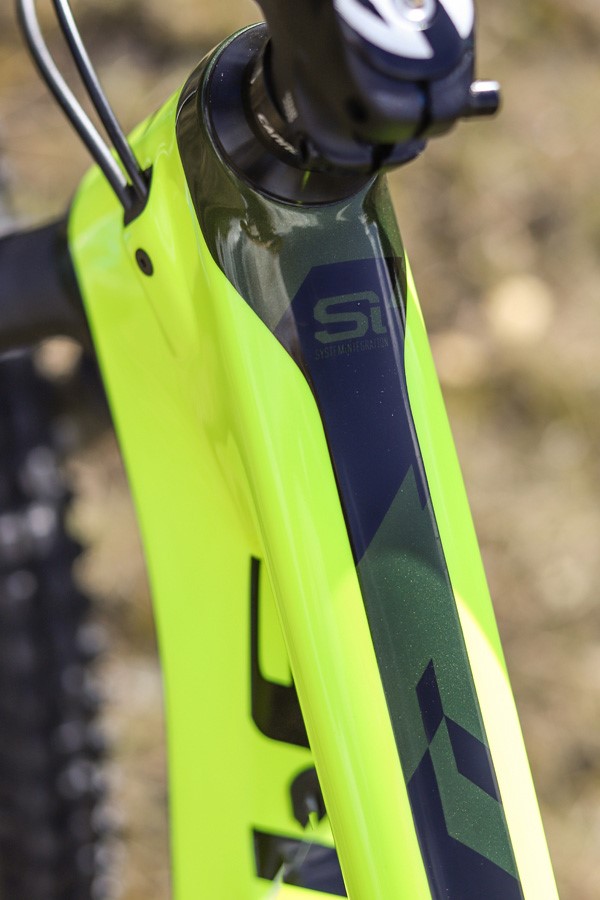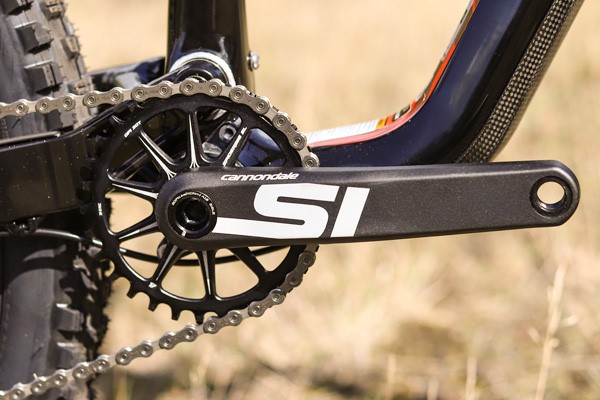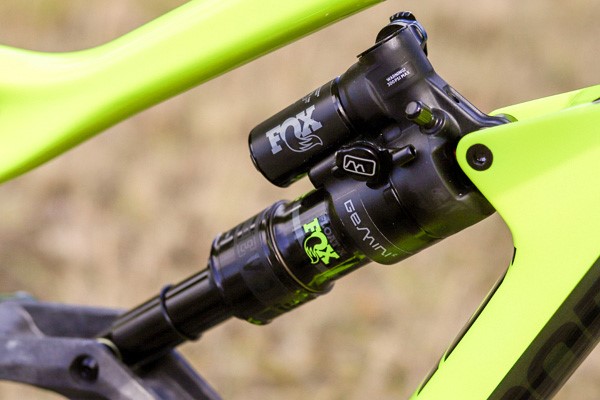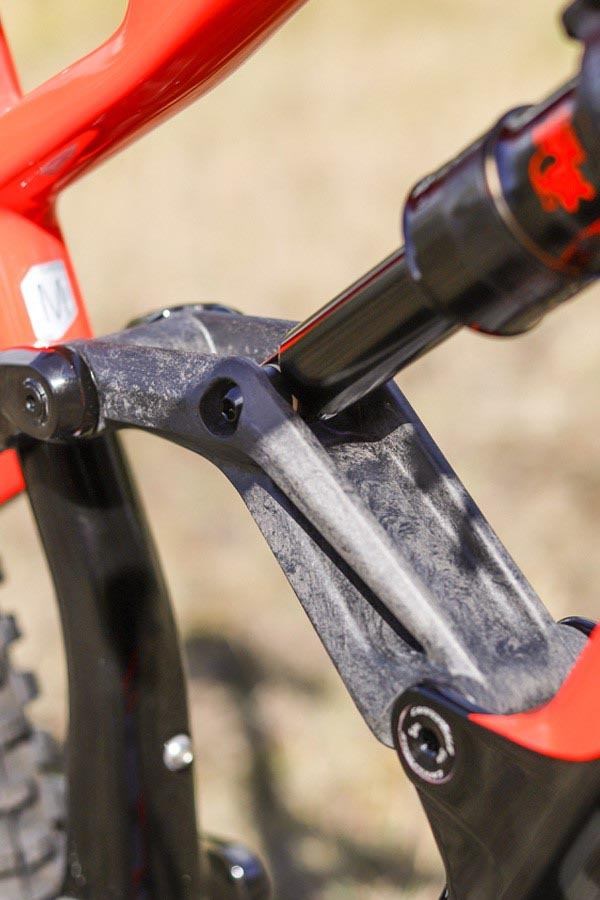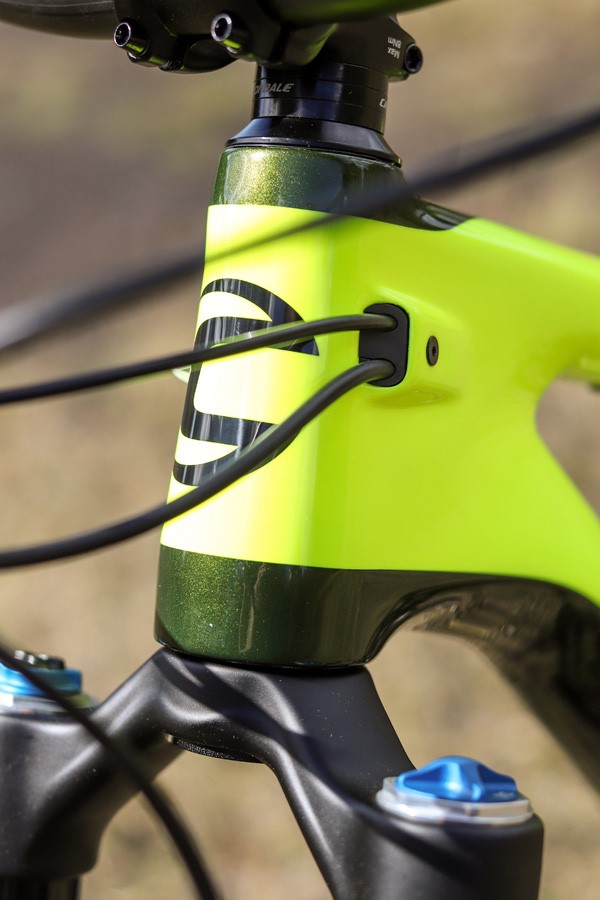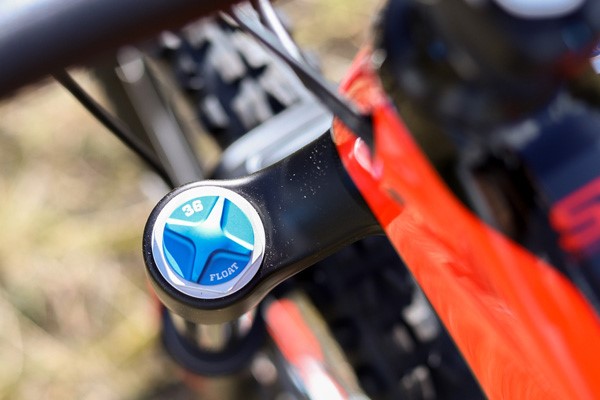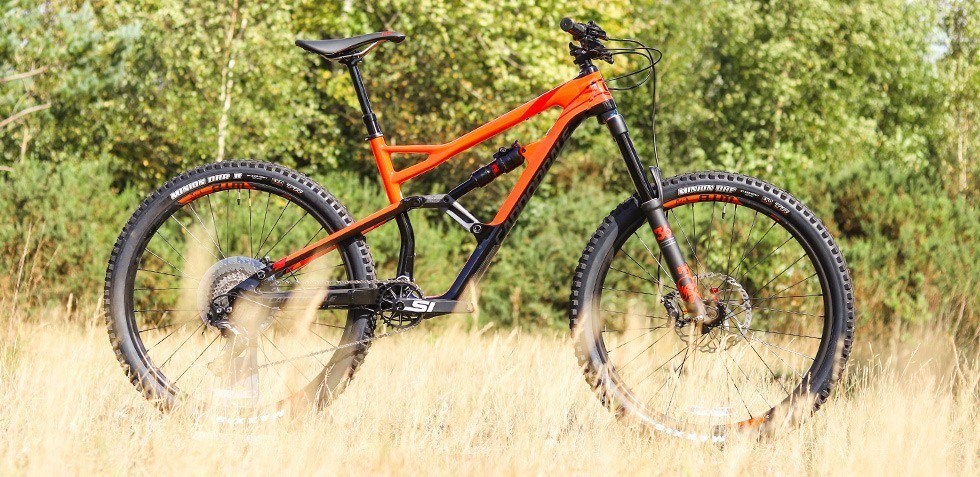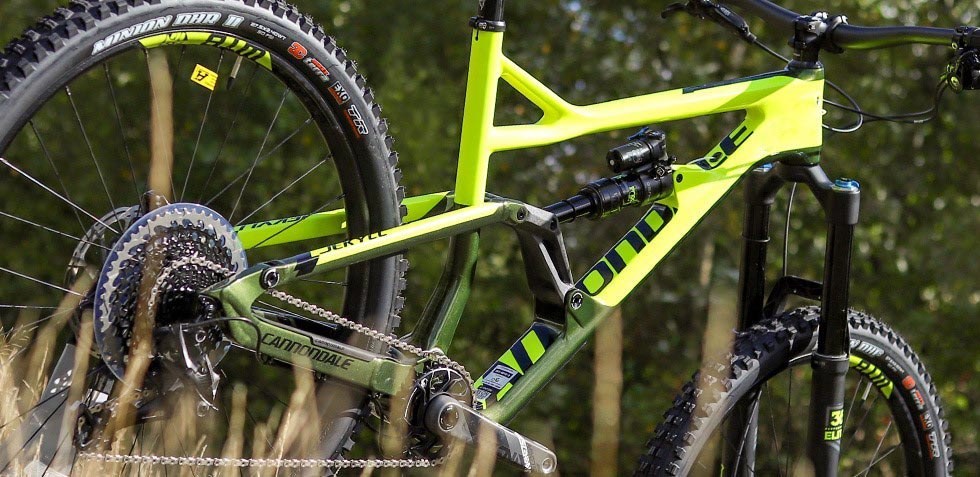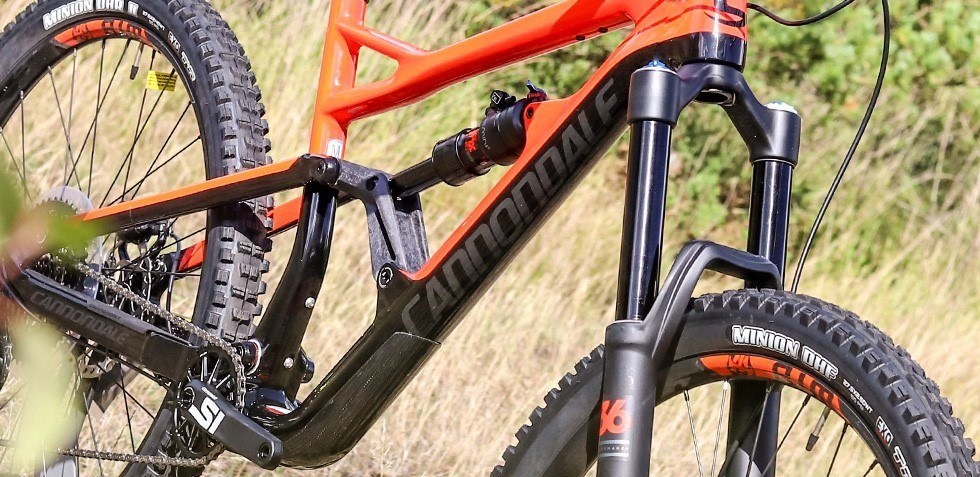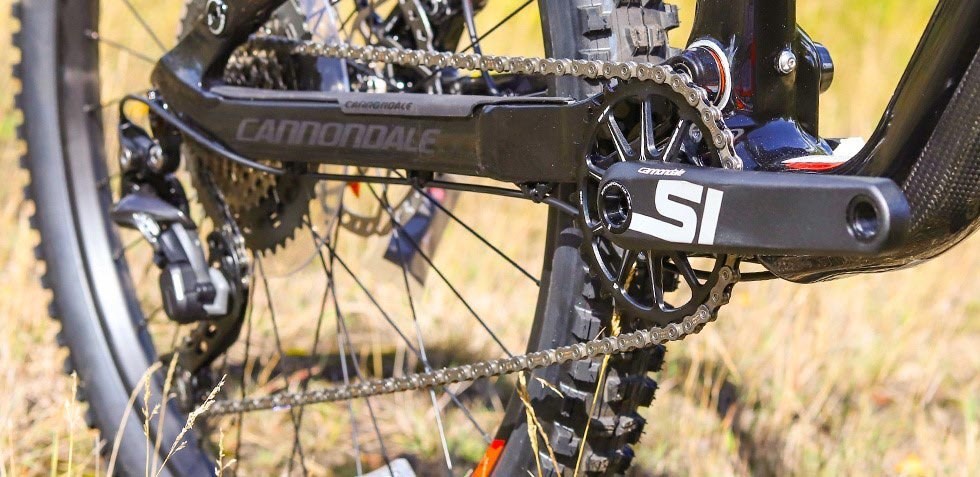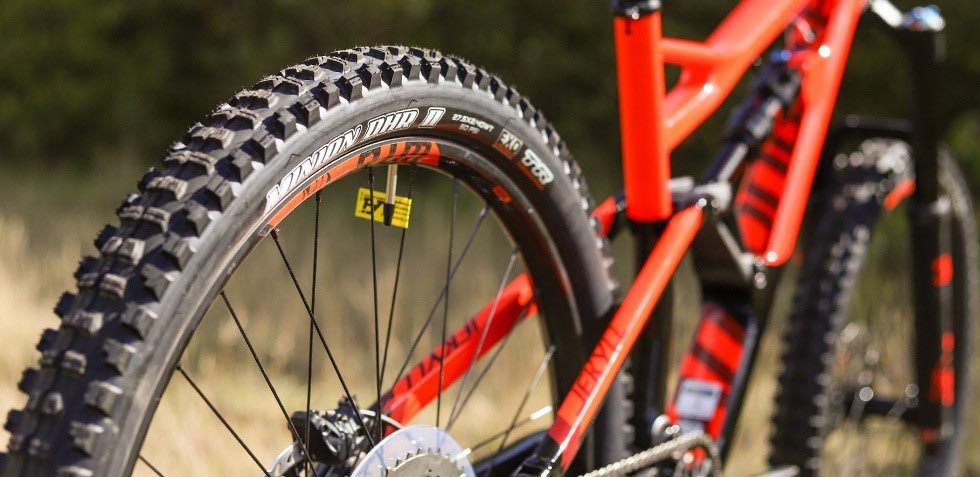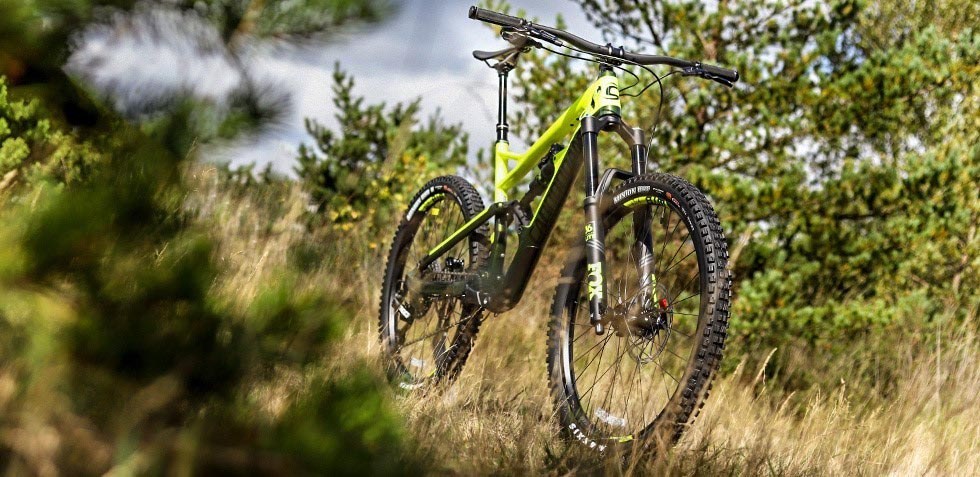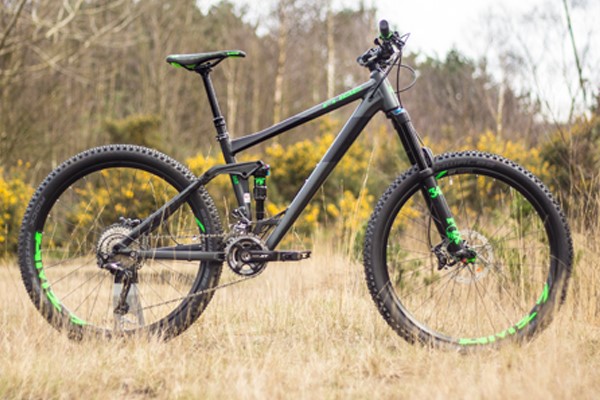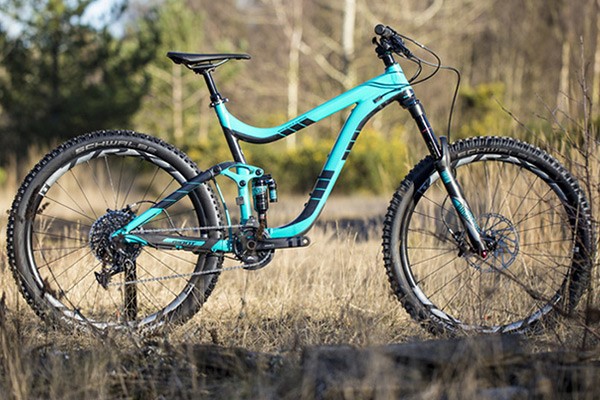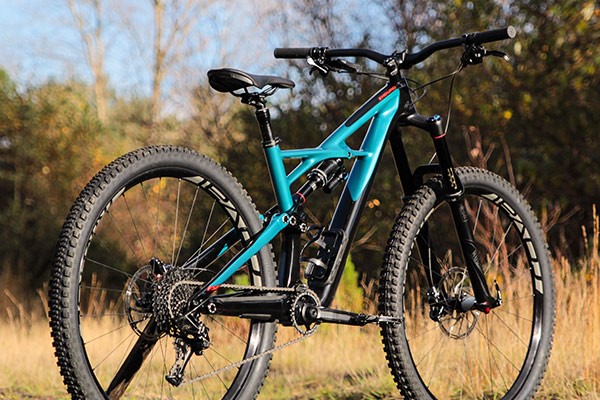- Alloy and carbon frame options
- Remote actuated adjustable travel
- Race-proven performance
- 29" wheels
- 12 speed drivetrains
- Maxxis tyres
Discipline:
Enduro Full Sus MTBUsage:
Challenging trail riding and enduro racingWeight:
Coming SoonDeveloped on the enduro racing circuit, yet approachable for everyday riding, the Cannondale Jekyll stays true to its name and delivers a dual personality riding experience
2020 Update
Following the success of last years big wheeled bikes the Jekyll now rolls exclusively on 29” wheels. These bikes have 150mm of rear suspension travel that is adjustable to 120mm with a 150mm travel fork. There are four unisex and one women’s specific model in the range. Each bike has a hard-hitting Fox 36 or RockShox Lyric fork alongside a 12 speed drivetrain and is shod with quality Maxxis tyres.
Updated: 17th December 2019
Overview
Race-bred at the Enduro World Series by Jerome Clementz, former EWS Champion, the Jekyll is as capable a bike as you can get. The Cannondale Jekyll has been developed as a full-blown enduro race bike. It’s meant to give riders a platform to push the limits in any terrain they want to ride.
The range includes a full alloy framed model, two carbon-and-alloy-framed models and a range-topping full carbon framed model. Fox suspension is found on all four models, while Shimano and SRAM drivetrains both make appearances. The whole platform is built around 27.5” wheels, focusing more on nimble handling rather than roll-over ability. And true to Cannondale form, travel is adjustable via a remote on the handlebars, just like Jekylls of old.
For 2018 Cannondale updated the entire Jekyll platform. There are four models available, all with exactly the same low, long and slack geometry, following the modern trends of enduro bikes. The Jekyll 4 is the only model that gets an alloy main frame, while the 3 and 2 get a Ballistec carbon front triangle and alloy swingarm. The Jekyll 1 has a full 'Ballistec' carbon frame front to rear. On all models, though, a full carbon link is used to actuate the shock.
Cannondale uses 'Asymmetric Integration', which moves the whole rear end 3mm closer to the driveside, allowing super short chainstays to be used, while still allowing for great tyre clearance. It’s the little touches that complete the premium feel of the frame, like the carbon bash guard that protects the downtube from rock strikes, and there’s even room for a water bottle in the main frame. Full internal cable routing is also provided, and the axle spacing at the rear is 148x12mm Boost standard, keeping up with the times.
There's plenty of room up front to provide stability in the steeps, while those short chainstays allowed the rear wheel to whip through the corners with a satisfying amount of speed. Pinkbike
Forget all of the acronyms and technobabble surrounding the Jekyll – this is a bike that likes to goof off, to drift around tight corners, manual at any chance, and generally cause a ruckus out on the trails
Pinkbike
Cannondale traditionally like to do things differently, and while it may seem they have done this with their 2018 Jekyll, it’s actually a move to a more conventional setup. Out with the bespoke pull-shock that was custom-built for them by Fox, and in with a new, push-actuated conventional rear shock and suspension setup. A link-driven single-pivot suspension design was chosen for its simplicity and easy adjustability. Fox shocks are found front and back, with the Factory forks complete with Kashima coating on the range-topping Jekyll 1.
They collaborated with Fox suspension to create a shock that can be adjusted via a handlebar-mounted remote. Called Gemini, the Jekyll uses a system within the rear shock to change the travel from the full 165mm to 130mm travel. Two modes are available, with ‘Hustle’ referring to the 130mm travel setting that is meant for more mellow trails, where ‘Flow’ refers to the full 165mm travel setting, meant for trails that are more challenging and rough.
The Cannondale Jekyll relies on wide range cassettes for the drivetrain, not being able to take a 2x drivetrain because of the suspension setup, which is not a bad thing.
Putting suspension performance first, the Cannondale Jekyll can only take a 1x, single chainring drivetrain configuration. This is because there needs to be extra room set aside for a front derailleur to be used, and this has been taken up by the 'Asymmetric Integration'. This is not a bad thing, though, as it simplifies the setup, and reduces dropped chains.
Shimano and SRAM have taken serious steps away from 2x setups, with SRAM completely forgoing them in MTB. You can see this with the huge cassettes out back. The Jekyll 4 and 3 both get Shimano SLX drivetrains and Shimano disc brakes. The Jekyll 1 and 2 both get SRAM Eagle drivetrains with 12 speed drivetrains with massive 10-50t cassettes, providing a 500% gear range. SRAM Guide 4-piston disc brakes deliver the stopping power needed when hitting the trails aboard the Jekyll.
The 2018 Cannondale Jekyll range is based around 27.5” wheels. This gives a nimbler basis to its handling as opposed to 29er wheels, which usually offer a more stable platform. Cannondale decided that for enduro racing purposes and general all mountain riding, 27.5” wheels were best suited.
The entry-level Jekyll 4 gets WTB i25 rims with 25mm internal width. The Jekyll 3 and 2 get WTB i29 rims, with the 2 getting the Team version and SRAM hubs. On the Flagship Jekyll 1, Cannondale HollowGram 30 carbon wheels provide rapid rolling as their lighter weight and stiffer structure gets to speed faster and holds a line better than alloy counterparts. All four models get Maxxis Minion tyres, which offer fantastic rolling speed without compromising grip at all.
Wide internal rims deliver huge support for the Maxxis tyres, giving grip and traction in all situations.
Developed on the enduro racing circuit, yet approachable for everyday riding, the Cannondale Jekyll stays true to its name and delivers a dual personality riding experience, thanks to the Gemini shock with its adjustable travel.
There’s no cutting corners with the Jekyll range, and while the entry level Jekyll 4 will lighten your wallet, it comes specced with everything you’d need to get racing immediately, with no discernible upgrades necessary.
